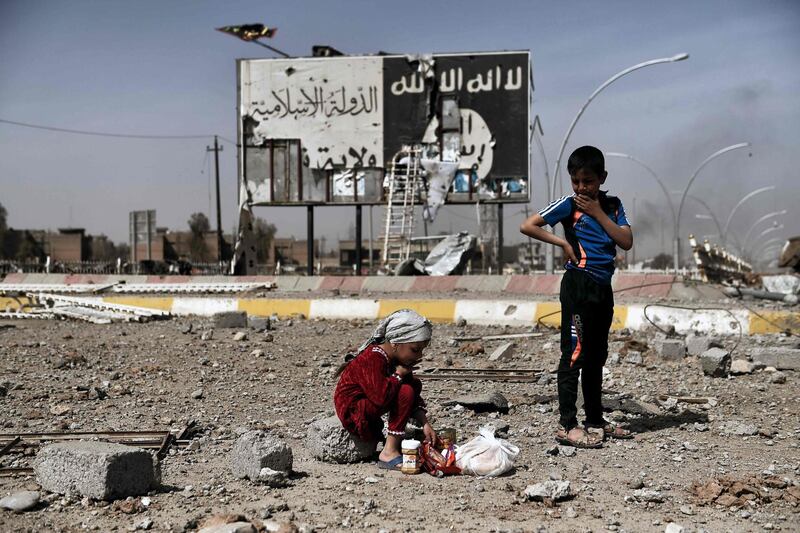Kurdish security forces in Iraq continue to use torture on teenage boys accused of ISIS affiliation, a rights watchdog organisation has said, two years after it first levelled the accusations.
In a report published on Tuesday, Human Rights Watch (HRW) said boys suspected of links to ISIS held in Kurdistan Regional Government (KRG) facilities in northern Iraq had been beaten, electrocuted, and held in stress positions in order to extract confessions. The KRG, which controls an autonomous area of northern Iraq, has denied the allegations.
“Nearly two years after the Kurdistan Regional Government promised to investigate the torture of child detainees, it is still occurring with alarming frequency,” said Joe Becker, children’s rights advocacy director at HRW. “The Kurdistan authorities should immediately end all torture of child detainees and investigate those responsible.”
Two years ago @hrw found that the #KRG was torturing child #ISIS suspects, today we report on how zero progress has been made, Asayish is still torturing the children into confessing to terrorism, even in cases where kids say they are lying in confessing https://t.co/ihFSuqVV2B
— Belkis Wille (@belkiswille) January 8, 2019
After holding a frontline against ISIS since 2014, the KRG has taken thousands of suspected ISIS supporters into custody. Many were arrested at checkpoints while crossing into Kurdish areas, while others were detained from camps for displaced Iraqis.
A New York-headquartered advocacy group that conducts human rights research worldwide, HRW interviewed 20 boys aged between 14 and 17 years old who were charged or convicted of ISIS affiliation and were held at a reformatory in Erbil, the capital of the Kurdistan region, as well as three boys who had been released.
Of the 23 boys interviewed, 16 said that before being moved to the reformatory they had been tortured by Kurdish “Asayish” security forces. Four more boys said they were threatened with torture if they did not confess.
Two of the boys said they had worked for ISIS and one said he had been a fighter. The rest denied personal involvement with the group, though some said other family members had been involved.
One of the boys said he was tortured by Asayish officers for three days after he was detained at a checkpoint in 2017, when he was 16.
“They bound my hands behind my back, one from above and one below,” the boy told HRW, who protected his identity due to him being a minor. “They beat me with a stick and they gave me five to 10 electric shocks.”
After three days of ongoing mistreatment, the boy said he confessed, being coached by the officers to say he served ISIS for two months, which the boy said was untrue.
Most of the boys interviewed also said they did not get access to a lawyer and said they were forced to sign confessions they were not allowed to read.
A spokesman for the KRG rejected the HRW report. "The KRG fully disagrees with the accusation of torture of children Isil detainees in the KRG region," Dindar Zebari, the KRG's coordinator for international advocacy, told The National. "We have to rehabilitate them, this is the policy of the KRG."
When HRW reported on allegations of forced disappearances and torture of juvenile prisoners in the KRG in 2017, Kurdish authorities promised to carry out an investigation. But this time Mr Zebari said there was no need for a further investigation, given that the KRG fully rejected the allegations, and already had policies in place to prevent the mistreatment of minors.
“The KRG has already put all its efforts from the first day to make a distinction between adults and those under 18 in terms of Isil detainees in the Kurdistan Region,” he said, using another acronym for ISIS.
Measures designed to protect children detained in KRG facilities included keeping minors in separate facilities from adults, and giving them “full access” to family members, lawyers, and non-governmental organisations. “These policies are fully in place,” Mr Zebari said. “If there have been individual cases in the past, today we fully reject the accusations of torture.”
The KRG itself had received no credible accusations related to the torture of children, he said. “Under our investigation committees, we have not had accusations addressed to specific names, places or authorities, or even specific events.”
He asked HRW to provide the KRG with the names of those who made the allegations. “If there are names or specific cases we request from HRW to please forward them to us, it cannot be a general accusation.”
_________
Read more:
Iraqi Kurdish party nominates Barzani cousins for top political spots
Barham Salih: The political survivor propelled to Iraq’s top office
KDP leads preliminary results from Kurdistan Region election
_________
In response, HRW said the KRG had failed to engage meaningfully with their report. "The responses that we continue to get to these allegations don't suggest that there is any will whatsoever in reading the report carefully or engaging in our findings," Belkis Wille, HRW senior Iraq researcher, told The National.
The fact that juvenile prisoners were supposed to be held in separate facilities did not prima facie disprove the allegations, she said. “We said in the report that the torture occurred while in the custody of the Asayish, before the prisoners were taken to the reformatory.”
HRW also contested Mr Zebari’s claim that children detained were allowed to see their families. “Staff at the reformatory confirmed to us that they restrict children’s access to phone calls and families, based on the orders of the Asayish,” Ms Wille said, adding that the KRG’s response appeared to be “a wilful choice to misrepresent our findings”.
“Many of these children have already been scarred by conflict and ISIS abuses,” Mr Becker said. “Instead of achieving justice, torture and coerced confessions only compound their suffering and contribute to further grievances.”





